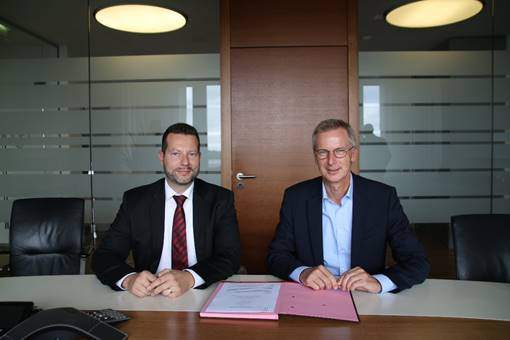BITZER and the Fassmer company have kicked off their partnership, having signed a cooperation agreement on 3 September 2019 initially for five years.
Fassmer designs and builds special vessels and is a global market leader in the construction of lifeboats and tenders. The company’s portfolio also includes the product ranges of system construction, wind power and fibre composite technology. BITZER is a reliable partner in air conditioning and cooling on ships: the specialist for refrigeration and air conditioning technology produces compressors, condensers, evaporators and oil separators, among other things, specifically for marine applications. The two companies signed a cooperation agreement at the Fassmer headquarters in Berne on 3 September 2019, laying the foundation for a successful collaboration.
Fassmer and BITZER will examine together CO2 refrigeration systems on ships, with a focus on both shipbuilding and refrigeration technology. Organic rankine cycle systems, which generate energy from waste heat, will also be a component of the collaboration. The agreement focuses in particular on further developing ships and refrigeration systems with the lowest global warming potential and emissions possible, taking into account applicable safety and environmental regulations as well as cost efficiency.
The term of the agreement is five years. Mathias Layher, Director Sales AC, Marine and Process at BITZER, emphasises: ‘Fassmer and BITZER pursue the same interests, which we’re now bundling for the purpose of developing eco-friendly solutions together for all kinds of refrigeration systems in shipbuilding. There’s a wide range of opportunities for partnering with Fassmer, and my team and I look forward to sharing our ideas and exploiting potential with Fassmer.’
Holger Fassmer, Managing Director of Fassmer, adds: ‘Developing and using forward-looking, eco-friendly technologies is an essential part of what we do. Working with BITZER and bundling our expertise and knowledge, we’ll be able to reduce CO2
emissions even further in future.’
